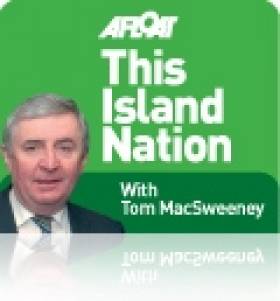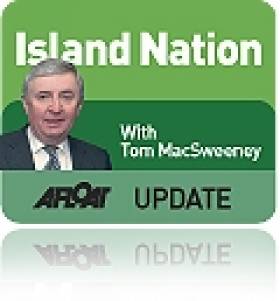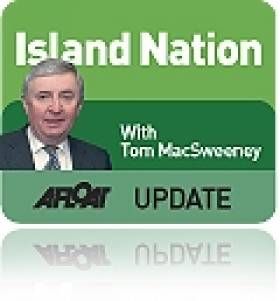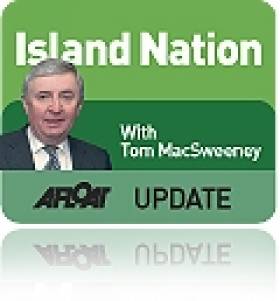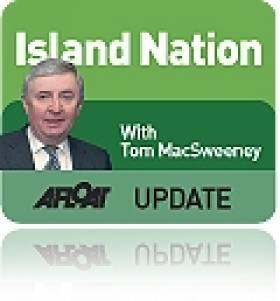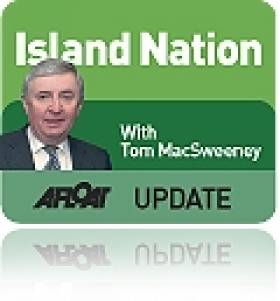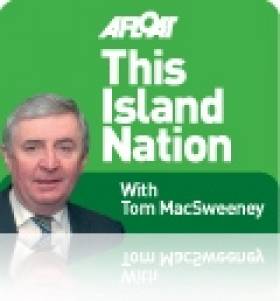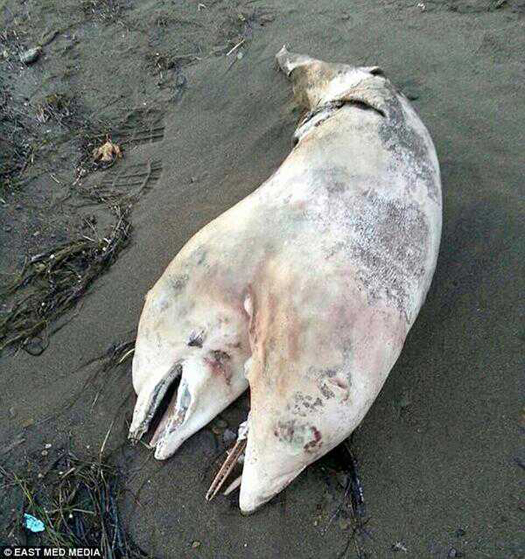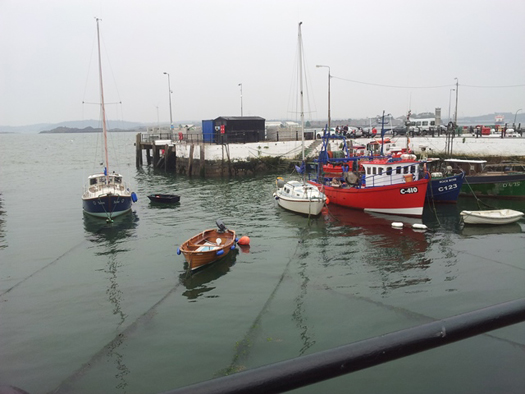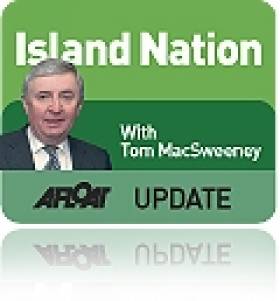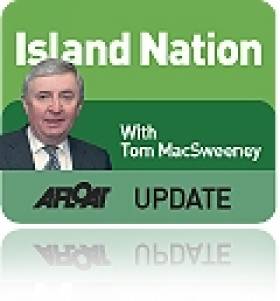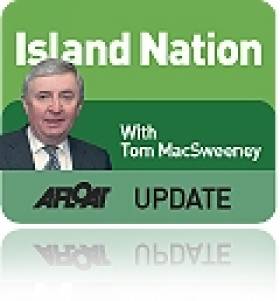Displaying items by tag: Island Nation
The Relationship of Ireland to the Sea
#islandnation – "There is a deep-rooted interest in the sea amongst Irish people. Seeing history through the prism of the sea, bringing together the coastal communities and the public generally will raise interest in the relationship of Ireland to the sea," says Dr.John Borgonovo, Professsor of History at University College, Cork, in this edition of the fortnightly THIS ISLAND NATION radio programme.
The programme is presented by maritime journalist, Tom MacSweeney, and will also hear well-known Galway sailor, John Killeen, talk about the need and importance for the public service to serve the maritime community in the development of marine facilties throughout the coastal regions.
There will also be a report from the first time-ever holding of the International Lifesaving Conference in Ireland, which will be held in Dublin, maritime news from Ireland and overseas and music of the sea.
Harnessing Our Ocean Wealth: Understand Backwards – Look Forwards
#islandnation – "Life can only be understood backwards, but it must be lived forwards."
It was Søren Aabye Kierkegaard, a 19th century Danish philosopher and theologian, who penned those words. His approach to philosophy was to leave the reader of his words to discover the meaning.
The philosophical approach of Kierkegaard relates in my thoughts to the State attitude towards the maritime sphere. Without seafarers and the sea this island nation could not survive. That fact appears to still elude the understanding of many in Government administration. Looking backwards, I appreciate the launch in mid-year of the Government's plan for the development of the maritime sector when Enda Kenny said:
"As Taoiseach, I want to see us reconnect to the sea in a way that harnesses the ideas, innovation and knowledge of all our people, at home and abroad. I want to see us setting out to secure for ourselves and our children the social, cultural and economic benefits that our marine assets can deliver."
Encouraging words at the announcement of the Government's integrated marine plan for Ireland – "HARNESSING OUR OCEAN WEALTH".
But, as Kierkeggard, said: "life must be lived forwards..." so I wait to discover what the Taoiseach meant by those words and to see how the plan is developed into 2015.
Reflection and resolution are traditional at this time of the year, so in pursuance of the thinking of Kierkegaard I reflect on my first year of broadcasting outside of the State service, an experience which has been interesting and which has underlined to me the importance of developing community, by co-operation, through opinion and action. From starting with just one radio station there are now four broadcasting THIS ISLAND NATION fortnightly, in Cork, Dublin and Clare and with, hopefully, more to join "the family of the sea" in the year ahead and two websites, including Afloat.ie
This edition of THIS ISLAND NATION looks back at some of the community-based stories broadcast in the past year.
Fair sailing into the New Year...
Do Boats Talk?
#islandnation – I have told my wife that my boat is not an inanimate object, that it does talk to me, which has generated the response that it costs enough, but does it ever explain why?
It may not be capable of vocal expression in terms of the delivery of a voice message, I have responded, but it certainly has an audio capability and a 'feel' to it, which lets me know when she (referring to my boat again) is unhappy with her situation, or the demands which I am making upon her.
When advancing this view to my wife in discussion, it has had less than a positive response and other people, perhaps not of a maritime vintage, do not accept my view that boats can talk, but I remain convinced that boats can and do talk in a particular manner. In the current edition of THIS ISLAND NATION which you can hear here, I am in discussion with Sean Walsh, President of the Old Gaffers' Association, about the love of boats and he tells me that he would not part with his beloved gaffer, Tir na nÓg of Howth.
"I sailed on a gaffer and I found the experience so extraordinary when I sailed on it for eleven years and then bought it and have sailed it for 22 years. My boat is a Falmouth Oyster and she is magnificent. These old gaffers were built for working fishermen and they fulfilled that brief perfectly in the same way as the Galway hookers fulfilled their brief," Sean told me when I interviewed him at one of those great locations for gatherings of the old gaffer, the Poolbeg Yacht and Boat Club in Ringsend, one of the great maritime locations of Dublin..
"Their sea kindliness, their ability, their composure in bad weather and a bad sea is, I found, totally extraordinary and I had never experienced anything like it and they look so bewitchingly beautiful in their full rig with a topsail and mainsail and I was bewitched when I first sailed on an old gaffer and I still am.
"I have been sailing Tir na nÓg of Howth for 22 years now and can never see myself sailing another boat."
There speaks a man who loves his boat.
Ah, if only old boats could talk, but there are sailors and owners, myself included, who believe that boats are not totally inanimate objects, but have a life and can, in their own way, talk to you at sea, letting you know how they feel as they cope with conditions.
What do you think – do boats talk?
John Hollahan accompanies the interview, singing 'If old Boats Could Talk'...
but perhaps they do, at least to some people..... me included.
The song is from the CD 'Songs for The River Men' which was compiled by the local community along the Suir Estuary when the three Bolger brothers, Paul, Kenny and Shane from Passage East in Co Waterford died after their 19ft fishing boat capsized outside Tramore Bay in June of last year. Paul, 49, was a father-of-one, his 44-year-old brother Shane had two young children and their 47-year-old brother Kenny was a single man.
On the programme you can also hear why tyres from a factory which closed down over 30 years ago are arriving on East Cork beaches and why the first-ever Christmas sea swim for charity, which started the tradition, will not be held this year.
The theme tune of THIS ISLAND NATION is 'Sailing By,' with which I led my maritime programme, SEASCAPES, on RTE for over 20 years. Now it sails on new airwaves. I hope you enjoy the programme.
Fair sailing
Sailmaker Des McWilliam Interview on His First Transatlantic Crossing
#islandnation – Sailmaker Des McWilliam talks about his first time sailing across the Atlantic, which he has "wanted to do" throughout his long sailing career, but has never done until now. He talks about the ARC - the Atlantic Cruiser Rally - in which he will start sailing this Sunday, November 23, leaving Gran Canaria, bound for Saint Lucia - and about the disappointment that the huge successes of Irish international sailors, "the Ronaldos of the sailing world" as he describes them, are not recognised in Ireland because enough people "do not appreciate the sea."
The leader of one of the country's top fishing organisations will question who is funding the environmental groups opposed to the fishing industry and the programme will hear about the search for a private plane to rescue a loggerhead turtle from Galway, as well as about the disappointing salmon season and the nation water safety awards.
Women Of Dubious Morale Values, Sailors, Sex, 'Fish Wives & Smugglers
#islandnation – In the maritime context there are probably several answers to that question, varying from legal to illegal, to elements of sex for sale to sailors at ports around the world, interpretations of the life of the sailor with a 'girl in every port' and so on. There is also the derogatory term "fish wife," often cast around in arguments between husbands and wives.
The value of women in a maritime context is one of the subjects in this fortnight's edition of my radio programme, THIS ISLAND NATION, to which you can – and should – listen above. Jim McLaughlin from University College, Cork, questions the failure of maritime history to recognise women as an integral part of the fishing industry and to appreciate the role of fishermen's wives, such as the tough women of the Claddagh in Galway. He says they have been ignored. The Galwegian women were so good to their fishing husbands that they met the boats on arrival back from the fishing grounds, carried their men ashore from the vessels on their backs, then filleted the fish and sold the catch.
Now there are women of substance for you!
Joe Varley, a Dublin man who has done an extraordinary amount of research work on maritime history, adds in the programme that another aspect of maritime history which has been ignored is that of smuggling. Rush in North Dublin was a great place for it and there's smuggler's cave on the coastline between Loughshinney and Skerries which was used by Jack Connor, a 'romantic and swashbuckling character' who was popular in then 'high society,' according to description and it contains treasure he stole. It is reputed to be guarded by a green serpent, but has never been properly located. Anyone with information, let me know please!
On the programme too you will hear beautiful music and song of the sea performed by the fishermen and fisherwomen of Newfoundland and Labrador, 'fish wives' certainly, but of a highly respectable and dedicated kind. They are part of a group which has toured the world called "Sea People," formed after the Newfoundland cod fishery collapsed in the mid-90s and who dedicated themselves to keeping alive the memory and traditions of the sea.
Those are the kind of people we need. Listen to them here and enjoy the sound of the sea.
Until next week, the usual wish of ..... "fair sailing" ........
Island Nation Podcast – Widow of Skipper of Tit Bonhomme & Commander of Navy's Newest Ship
#islandnation – This month, Caitlin Ni Aodha, widow of the Skipper of the Tit Bonhomme who drowned in that trawler tragedy in West Cork, talks to us on the pier at Howth in County Dublin as she launched the new fishing boat she has bought about how she feels returning to the industry and overcoming the grief and tragedy.
The Commander of the Navy's newest ship, the LE Samuel Beckett, Lt. Cdr. Tony Geraghty, describes his role and how the ship causes him some concern when it goes quiet and uses the alternative electric motors instead of diesel to save fuel.
And we have reports from the RNLI and the Irish Water Safety Association.
This Island Nation is now broadcast fortnightly, the next programme will air on Community Radio Youghal and on other stations around the country during the week commencing the 20th of October.
Writing Fishing Women Out Of Existence, Ignoring Pirates & Limerick Slave Port
#islandnation – Why is it that women have been written out of the history of the Irish fishing industry and that in Ireland we ignore the economic opportunities which can be obtained from associating with pirates?
Those are two of the fascinating questions which arose at the symposium about the Irish Sea held in the National Maritime Museum in Dun Laoghaire on Saturday.
The "History, Culture, Environment" of the Irish Sea and whether it should be considered a place, a sea, or a connecting corridor of social, economic and trade importance between the people on both sides of the sea, would that seem a topic of general or limited interest to you?
It should be and what emerged during the day-long symposium was fascinating.
For example, they liked their smugglers in Rush in North County Dublin, so much that in the 1800s the Revenue could only get one man to remain in the village for any length of time before he was chased out, as the locals preferred the smugglers. But why, Joe Varley of the Institute asked, when presenting research done by Maighread Ní Murchadha about the Irish Revenue Boatmen from 1684-1766, do we Irish not make more of the opportunities which the maritime history about smugglers now makes available?
"I think we are a bit behind in the way we develop that. You go to Devon and Cornwall there is every escapade, whether real or made up, about smugglers. There are Smugglers' Coves, Smugglers' Inns, festivals about smuggling and they all attract people into the areas, so there is a great commercial potential. So why in the various parts of Ireland where there are smugglers' traditions, is that not used?
"They loved their smugglers in Rush. There were seven Revenue Boatmen in Skerries, seven in Portrane, eight or nine down in Malahide, all around the same area, in the 18th and early 19th centuries, which was the golden age of smuggling, but always just one brave soul in Rush and he wasn't very welcome! Indeed the locals weren't very welcoming to the Revenue generally and used them for their own purposes. In some areas those who operated as smugglers even gave them accommodation in their own homes as lodgers, so they would know when the Revenue were out on patrol and they could time their smuggling for when the Revenue were ashore!"
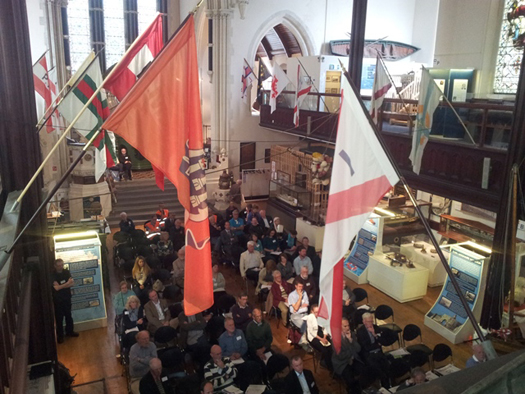
So, just think of all the opportunities around the coast to benefit from historical smuggling – not mind you the current type we have seen in recent years with drugs smuggling!
In the 18th century Rush (pictured below) was regarded as a "Smugglers' nest." One of the most well-known smugglers from there was Luke Ryan, born locally in 1750. He emigrated to France and obtained a commission as a Lieutenant in Dillon's Irish Regiment. After some time he returned to Rush and began operating as a smuggler between Ireland and France.
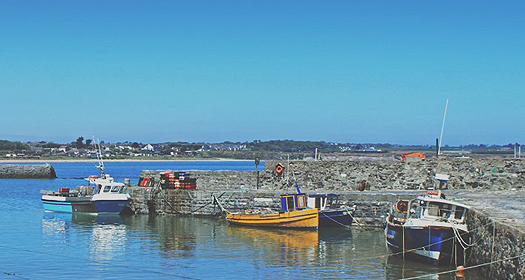
From 1775 until 1783 France sympathised with the Americans during the War of Independence and the French government commissioned Ryan as the Commander of a privateer, The Black Prince, which for several years plundered English ships around the English coast. In 1782 English forces captured Ryan and he was convicted in the Old Bailey in London on charges of piracy, smuggling and treason and condemned to death. He had a charmed life, however. Ordered to the gallows four times, four times he was reprieved. At the conclusion of the war, the French intervened on his behalf and secured his release. Unfortunately, his nest egg, some £70, 000, a lot of money at the time and which he had amassed from smuggling and privateering, was appropriated by French bankers. He died in a debtors' prison in 1789, where he was detained for a debt of £200.
Another Rush smuggler was Jack Connor, a native of Wexford, who practised his trade from what was known as 'The Smugglers' Cave,' located between Loughshinney and Skerries. Described as a "romantic and swashbuckling character," he was popular in high society and it was believed his cave held rich treasures taken during smuggling, but that it was guarded by a green serpent. The cave has never been properly located!
WOMEN CARRYING MEN ON THEIR BACKS
The women of the Claddagh in Galway were so powerful physically, that they often met their men at the boats when they came back from fishing and carried the men ashore on their backs, as well as setting the prices for the fish, cleaning and selling them.
"They were big, powerful women, the Claddagh women," Jim McLaughlin, a political geographer and social scientist, who has lectured at UCC for over 25 years, described them when he made the point that it was strange, because the fishing industry depended upon them, that women had been written out of its history.
"In old photographs you can see fish piled up on the pier, the women cutting and filleting them, the men in black suits who were the merchants looking on, ready to buy the fish."
But the women were disregarded as lower-class because they were doing the tough, dirty job of filleting the fish, blood and guts around the place and they were considered a bit wild. So is that where the 'fishwife' derogatory term came from?
"Women who worked in a men's world were considered of dubious background and quality and were crossing barriers. They were treated badly and their story should be told, perhaps starting with the photographs from around the fishing ports, but there is a huge job of research work and I don't see too many people rushing to do it, but women have been badly treated in the history of the fishing industry."
Professor John Brannigan of UCD's School of English, Drama and Film, one of the organisers of the symposium said he was surprised that, as Ireland had such a wonderful maritime heritage, we have no developed sense of studying that history. Maritime history is not an academic subject, whereas in the UK there are well-developed centres of maritime heritage.
"I am curious why that is the situation when people like to live by the sea, there is a clear value commercially from the sea, which is all very important to an island community which we are in Ireland, so there is a vast amount of research work to be done."
On the way back into Dublin on the DART from Dun Laoghaire I could see occasionally the Dublin Bay sailing fleet on the water for Saturday racing. But quite regularly it was cut off from vision by the high walls around the track and at stations. Unfortunate for a railway running alongside the Irish Sea.
TWO-HEADED DOLPHIN
Scientists have not been able to come up with a reason for a dead two-headed dolphin that washed ashore in in Izmir in Turkey, only the fifth known case of conjoined twins in dolphins. The rate of conjoined twins in marine mammals is less than one percent.
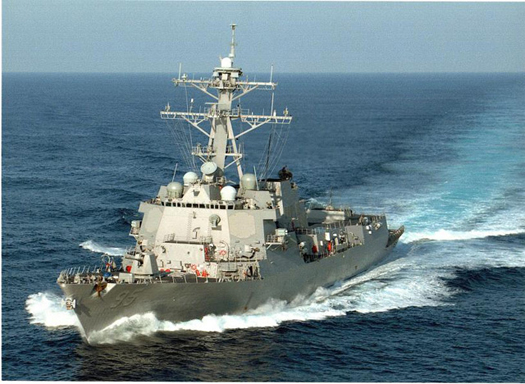
US NAVY SACKS MISSILE DESTROYER OFFICERS
The US Navy is continuing investigations into the situation that emerged aboard its missile destroyer, the USS James E. Williams, part of the 6th Fleet operating with the US Africa Command. The ship's Commanding Officer, Executive Officer and Command Master Chief, effectively the entire command leadership, were fired from their posts in a rare move, while the vessel was at sea, as a result of what has been described as "an on-going climate investigation." The ship departed her homeport of Norfolk on May 30 for an eight-month deployment.
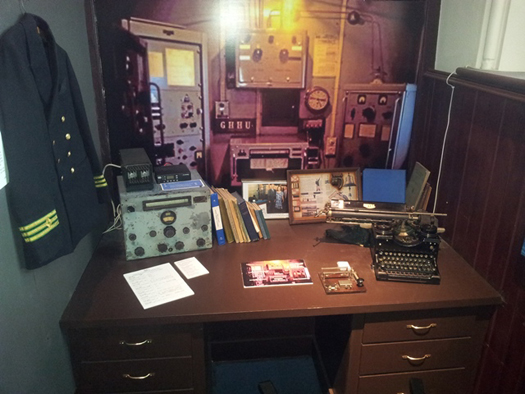
FIRST FOR IRELAND BY RADIO OFFICERS
Since its foundation in 1994, the Radio Officers' Association, for the former 'Sparks' of the sea waves, has grown to 400 members worldwide. For the first time, Ireland has been selected for a re-union of its members. This will take place in Dun Laoghaire on the weekend of November 21/22.
WHAT DO 'YACHTIES' WANT?
Fáilte Ireland is examining the coastal infrastructure in Ireland to find out what the expectations of sailors are. The tourist industry organisation has begun a market research initiative on consumer preferences for sailing, focusing on the infrastructure, facilities and services required to make Ireland a more attractive destination for sailing amongst domestic and overseas sailing enthusiasts.
LIMERICK A SLAVE PORT
While Ireland was never known to have been involved in slaving or having slave ships, research shows that in 1784 Limerick was the first Irish port to attempt to develop a slave-trade company. And in July 1718 a Limerick ship transported 96 slaves from Africa to Barbados, while two Dublin-based ships, the Sylva and the Sophia, were recorded slaving in the Gambia in May 1716. Africans being transported to Jamaica on the Sophia revolted, killing all of the crew except the Captain, according to historical reports.
So, a lot of maritime history this week.... Until next week, the usual wish of .....
"fair sailing..."
Email: [email protected]
Twitter: @AfloatMagazine @Tom MacSweeney
Preserving The Naomh Éanna, GPS Failure, & Buying An Island?
#IslandNation - Readers of this blog have been kind in welcoming me back to the airwaves, for which I am grateful. Community radio on which I now broadcast is quite a big operation about which I did not know a lot until I met the people who run Community Radio Youghal, CRY104FM, in the seaside town on the East Coast of County Cork. At their invitation I returned to the airwaves, broadcasting THIS ISLAND NATION every month and with more development now ahead, thanks to the positive response of listeners.
Every week 2,000 radio volunteers around the country engage with 307,000 listeners, broadcasting from 22 fully licensed stations, in addition to which there are a number of stations at different stages of development. Community radio is a rapidly growing broadcasting sector and a force for community development, identity and expression.
A community radio station is not focussed solely on broadcast schedules, which are subject to the diktats of commercial interests for advertising purpose. So it has a stronger focus on the values and interests of the community to which it broadcasts and can provide a wider variety of broadcasting. It appears to me that it can offer what is missing from mainstream media, newspapers, radio and television - and that is a regular forum for maritime news, information, comment and opinion, related directly to communities. The mainstream media, with a few exceptions, does not give sufficient regular, informed, balanced coverage of the marine sphere.
Transmission of THIS ISLAND NATION as a monthly radio programme about the sea, with the well-known signature tune ‘Sailing By', began earlier this year and interest has grown. ‘Sailing By’ was dropped by RTE as the signature tune for the programme Seascapes, which I had developed and broadcast there for over 20 years.
NEAR FM 90.3 community radio for Dublin North East and Raidió Corca Baiscinn 94.8 FM in County Clare also broadcast THIS ISLAND NATION, as does Afloat.ie on this website. I am hopeful that more community stations around the country will join in broadcasting the programme, for which the plan now, in response to growing interest, is to increase transmission from monthly to fortnightly from next month. CRAOL is the national representative body for the community radio movement.
With modern technology it is quite easy to listen to radio stations broadcasting from anywhere around the country. The app Tune In Radio, which can be downloaded from the Google Play store, is great for listening to radio anywhere. Download it and you have access to all radio stations on Adroid smartphones, tablets, laptops and desktops. That includes, of course, those which broadcast THIS ISLAND NATION.
PRESERVING THE NAOMH ÉANNA
After what has been a long battle against what seemed to be the complete disinterest of Government and State agencies in maritime heritage, Sam Field Corbett tells me that his Irish Ship & Barge Fabrication Company has acquired the heritage ship Naomh Éanna – “effectively securing the vessel for the next three months,” he says. “During this period IS&BF will complete the in-depth survey required to calculate the cost of repairing the hull and machinery to compliment the calculations for her refit as a boutique hostel, restaurant, cafe and museum.”
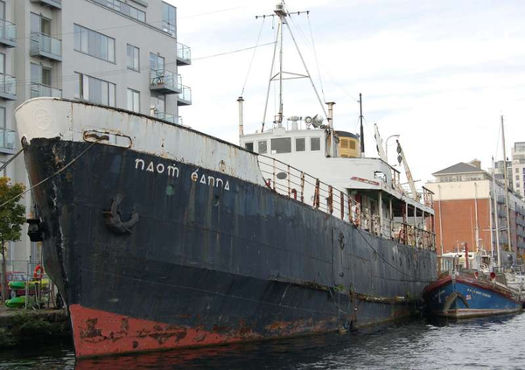
The Naomh Éanna was built by the Liffey Dockyard and launched in the late 1950s. Until 1988, it served as the Galway-Aran Islands ferry and had been operated by CIE. The vessel was purchased by the Irish Nautical Trust and moored at Grand Canal Dock in 1989 after it was decided that it could no longer operate as a passenger-carrying vessel.
Waterways Ireland, owners of the Grand Canal Dock, had determined to scrap the ship, maintaining that its condition was unsafe. WI had little interest in listening to proposals for preserving the ship. There was a debate about it in the Dáil which was told that the underwater archaeological unit of the Department of the Environment did not consider that the Naomh Éanna should be protected and disregarded the fact that it was “an example of the shipbuilding techniques used in the Liffey Docks in the 1950s”. That type of history, according to the Department, did not “justify the expense that would be involved in its preservation”.
Closed minds towards maritime heritage continue to dominate official circles but Sam Corbett refused to give up. Those supporting him had to fight against the attitude of officialdom which sought to exclude several of those who could be considered ‘stakeholders’ from meetings about the future of the ship, according to those who had an open mind the future of the vessel.
Sam Corbett tells me that “the final part of the negotiations” lies with NAMA “who seem close to issuing the three-month lease on the site which will allow surveyors to access the ship and determine her condition.
“Difficulties regarding a €50,000 bond in favour of Waterways Ireland should they be expected to step in and remove (scrap) the ship should IS&BF efforts to secure funding fail, may be close to being resolved. IS&BF presented Nama with an undertaking by a recycling company experienced in specialist breaking and NAMA are considering this option. We hope to have a decision shortly.
"IS&BF are intent on approaching a number of venture capitalists to invest in the project which is presented as a viable business. How the business plan is received by potential investors will ultimately decide the ship’s fate. We have chosen to approach potential investors who have an interest in supporting Irish heritage and jobs.
“This was the original proposition since we became aware the ship was going to be scrapped many months ago. It has been a long process. Without support it would not have been possible. Indeed, it would have surely been scrapped if it had not been for the direct intervention of TDs Kevin Humphreys, Sean Kyne, Joan Collins, Eamonn O Cuiv, Senator David Norris and Councillors Mary Freehill and Dermot Lacey among others.
"Many challenges lie ahead. However, it’s a great accomplishment to have got this far. The money donated by our supporters will be used to conduct the survey as planned and the reimbursement of this money to the RNLI has been included in the project costings. We hope to be able to invite all our supporters to visit the ship when she is being restored and look forward to meeting everyone then.”
Sam Corbett Field is the man who led the restoration of the former Cork Harbour liner tender MV Cill Áirne which could also have been destined for destruction but is now a floating restaurant on the Liffey in the Dublin Docklands near the IFSC. He is also involved in the operation of barges like the Riasc on the Dublin canals. He is not a man who gives up!
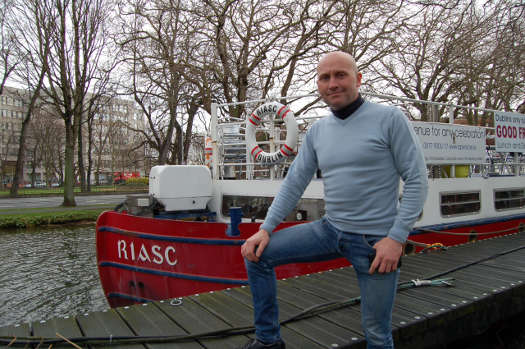
Sam Corbett Field by the Riasc on the Grand Canal
GPS FAILURE
It did not get a lot of public media attention at the time, though it was well-known in maritime circles, when the satellites in the Russian GLONASS GPS system failed for 11 hours last April. It was an unprecedented total disruption of a fully-operational satellite positioning service. As a result, the Russian GPS system was completely unusable to all worldwide GLONASS receivers.
The extent of the disruption has become clear following information released by the General Lighthouse Authorities of the UK and Ireland. GLA readings from their GLONASS receiver in Harwich showed location errors of over 30 nautical miles off the UK coastline.
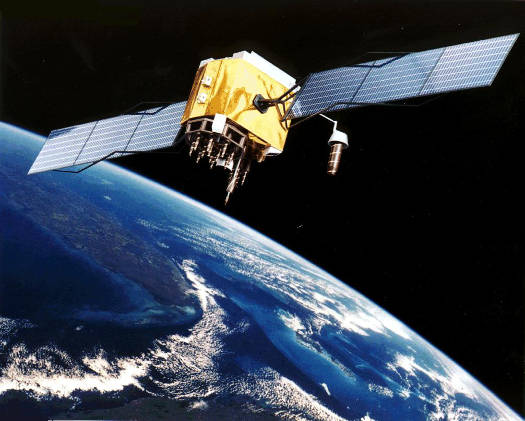
Apparently the problem occurred because of what were described as “bad ephemerides” being uploaded to satellites. Navigation messages from every satellite requires ephemeris data which is used by the satellite to check its orbital position and information about the time and status of the entire constellation. This data is then processed by user/receivers on the ground to compute their precise position. Less than a fortnight after the first failure, a second malfunction occurred temporarily knocking-out nine GLONASS satellites.
There are, according to information, quite a lot of GLONASS users, including some mobile phone systems. The GLA said that what happened “is a timely reminder that alternatives to satellite navigation are essential”.
The GLA themselves are supporting eLoran as an alternative to GPS for the UK and Ireland. This system transmits long-range position, navigation and timing signals from a ground-based radio network. Its primary use is for ships and others in the maritime sector, but it could provide a back-up for GPS, GLONASS and GALILEO (the long-awaited European system) when it arrives. But eLoran is still proving a hard sell to gain acceptance, according to those in the business.
A Royal Academy of Engineering report in 2011 declared that the UK was becoming dangerously over-reliant on Global Navigation Satellite Systems. Use of space-borne positioning and timing data is now widespread, in everything from freight movement to synchronisation of computer networks. The academy found that “too few of these applications have alternatives should the primary sat-nav signals go down”.
There is a detailed article about the failure of the GLONASS system and the implications for GPS in the September edition of Seaways, the international journal of The Nautical Institute.
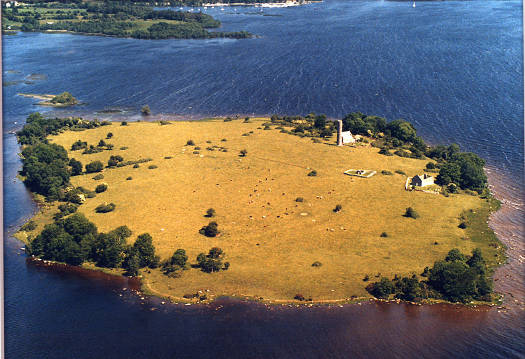
BUYING AN ISLAND
There are a lot of interesting things happening along the Shannon, the latest of which is the decision of Clare County Council to buy Holy Island on Lough Derg, which is the largest lake on the River Shannon. The island has links back to Brian Boru. Called also the 'Jewel of the Lough', it is an important historical and ecclesiastical site, covering 50 acres of which four are in the ownership of the Office of Public Works. There are monastic ruins, including a 24m-high round tower, an oratory and church buildings. The island is still used as a burial ground. It is not far from the village of Mountshannon.
DRIFT NETS ABOLITION
The European Fisheries Commission wants to prohibit the use of any kind of drift nets for fishing in all EU waters from January of next year. It would also be made illegal to keep drift nets aboard fishing vessels. It is an all-embracing ban, typical of EU bureaucracy which does not give sufficient consideration before action to the socio-economic effects on, for example, coastal fishing communities, against whom its effects could be discriminatory.
While a ban on the abuse of these nets by big fishing boats from major fishing nations has had some positive effects on salmon stocks and protection of marine mammals, the EU and Irish Governments are ignoring the need, which is clear, for a comprehensive, long-term plan to be devised, with the involvement of local people, for the future of sustainable coastal fishing communities.
As an example of the disregard for coastal communities, the Government has still not responded to the Report of the Oireachtas Committee on Fisheries published last December that called for a Dáil debate and specific attention to be given by Government Departments to the socio-economic problems of Ireland’s coastal and island communities.
WHAT HAPPENS TO A SHIP?
Rarely does the general media report afterwards what happened to a ship aboard which a disaster has occurred. One such vessel was the MV MSC Flaminia, a German-owned container ship which caught fire on 14 July 2012, forcing the crew to abandon ship in the middle of the Atlantic Ocean. Three seafarers were killed.
Due to the damage and the cargo she was carrying, no country would give her ‘safe haven’ after the fire was put out. Eventually, nearly two months later, the German government had to respond to the requests of salvage crews and allowed the damaged vessel to be towed into Wilhelmshaven in Germany on 9 September.
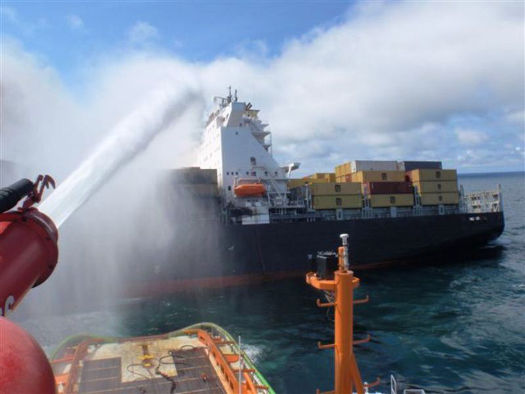
The MV MSC Flaminia on fire in the mid Atlantic
In March 2013 she departed Wilhelmshaven for the Daewoo shipyard at Mangalia in Romania, where repairs were carried out. They were completed this July and the Flaminia, a post-Panamax container ship with a capacity of 6,750 TEUs and deadweight tonnage of 85,823 tons, 980 feet long and 130 feet wide, drawing 48 feet when fully laden, has returned to service. The repair work on the badly-damaged vessel included conversion into a modern eco-ship to reduce fuel consumption.
Email: [email protected]
Twitter: @TomMacSweeney
Why Does The Central Bank Not Recognise Marine?
#islandnation – Having written last week about the lack of national recognition for our maritime heritage I received a press release about the Central Bank honouring John Philip Holland, the Irish inventor of the submarine.
I am pleased to see that the Central Bank has taken such a step but, perusing the media releaseon the Central Bank website, I noted the quote from the Central Bank’s Director of Currency and Facilities Management, Paul Molumby: “This is the first in a new series that the Central Bank will issue to honour Ireland’s impressive scientific and technological tradition.”
Not a single reference by the Central Bank to the great maritime tradition of Ireland in launching the coin about an invention, fundamental to which was the marine sphere.
Mr.Molumby is quoted further as saying that “John Philip Holland’s life and achievements were extraordinary. He played a significant role in the development of submarine navigation and following his emigration to the USA, he designed the first working submarine.”
Indeed, he did, but Mr.Molumby and the Central Bank omitted mention of the marine in the technological development they were honouring.
At least the Bank went to the Marine Institute in Galway to launch the coin.
The Institute issued a press release with the same quotation, but Dr. Peter Heffernan, the Institute’s CEO, did mention at the launch that Ireland has “a strong tradition of innovation and we at the Marine Institute are very proud to maintain that link with the history of marine technology. We named our remote operated vehicle (ROV) after John Philip Holland.”
This ROV honours the legacy of a man who used the maritime sphere for innovation, but the Central Bank in honouring him do not even use the word ‘marine.’
The Marine Institute is using the ROV on surveysof mid-Atlantic volcanic vent fields and new animal communities on the deep canyons of our Continental slope, as well as working on crucial fisheries, environmental and climate changes and assisting in the development of new marine sensor technologies.
The Central Bank is charging €44 for the €15 coin according to the press release.
Am I being tendentious in making this point?
Perhaps, but where there is neglect of the maritime sphere at the highest levels, it should be challenged and the more it is, the more those disregarding our maritime traditions and potential will be forced to change their attitude.
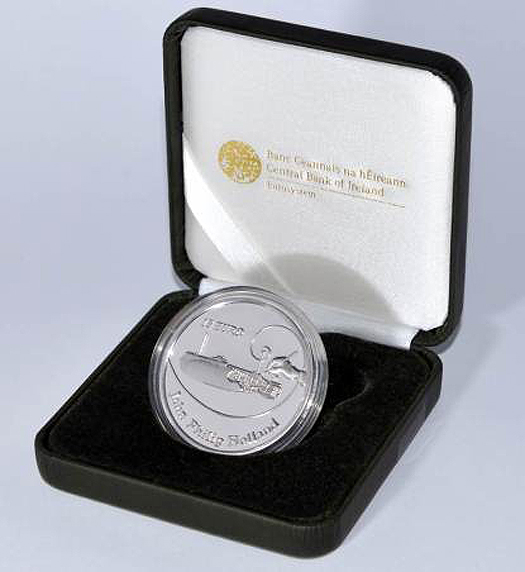
While the issuing of the coin (pictured above) is welcome, I respectfully suggest to the Central Bank that it acknowledge the maritime sphere and note that Holland’s invention relied fundamentally on the marine.
FISH GUTS AND DIESEL AND THE RESTLESS SEA
Have you ever wondered what it’s like to be a fisherman? With Autumn having arrived and Winter not far behind, life on the ocean wave can be tough, rolling and plunging as the boat hits heavy seas while fishermen struggle with lowering and hauling of nets to catch the fish which we can eat in more pleasant surroundings.
Paul McDonald is a songwriter who wrote much of his work in the heart of Dublin, where he had a cottage in Copper Alley. But he also had experience as a fisherman out of Galway. The song, “Fish Guts and Diesel,” on his CD ‘Crazy Old World’ tells his story of life aboard a trawler many miles out to sea off the West Coast – on the Porcupine Bank. You can hear it on this month’s edition of THIS ISLAND NATION (above), my monthly maritime radio programme that is broadcast on a number of community radio stations.
“As long as I live I’ll never forget the smell of that combination of fish guts and diesel,” he said.
There are some beautiful lines in the song which anyone who has kept a night watch at sea will empathise with:
“Sometimes in the dark as you gaze in the night,
Your mind’s in the stars as your thoughts they take flight
And then a Force Seven brings you back down to earth
And you battle the elements for all that your worth.”
You can hear the song at the start of this month’s programme. As I broadcast it, I could almost see those dead fish eyes which he sings about, staring up at me from the catch hauled aboard. Having been on a few trawlers in my time, occasionally in not-too-pleasant conditions and even though I sail and have sailed in rough weather, I admire hugely those fishermen whose stomachs, I think, must be made of cast-iron to withstand the conditions in which they have to work. I think anyone with an interest in the sea will like the song.
FOREIGN BOATS COST IRELAND OVER A BILLION EUROS
Incidentally, the huge value of fish caught in Irish waters by fleets from France, Spain, Portugal, Holland and the UK, is shown by the figures which the Department of Agriculture, Food and the Marine has released for catches taken last year from around Ireland. The total value was €1.16 billion. That would be hugely valuable to this nation’s economy, but regrettably Ireland’s share of this catch was only 17 per cent in value. The total catch taken from Irish waters 1,040,117 tonnes, but Irish boats were allowed by EU regulations to catch only 23 per cent of this tonnage. These figures prove just how much the EU gets in monetary value from Ireland. Little is heard about this from economic commentators or politicians who tell us how grateful we should be to the EU, but the reality is that the EU gets a lot of money from Irish waters. Our fishing industry, rather than shrinking in size, should be much bigger, with economic and employment benefit, if the riches of Irish waters had not been given away by Irish governments .Tellingly, the summary line in the figures compiled by the Department says that the economic value of €1.16 billion which they quote for fish caught in Irish waters “… represents a conservative estimate.”
BROADCASTING FROM THE COASTLINE
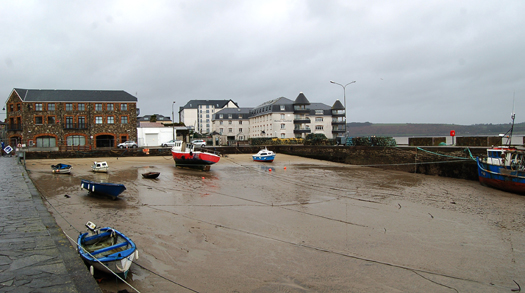
Youghal seafront
THIS ISLAND NATION is broadcast from the studios of Community Radio Youghal on the coastline of East Cork and the banks of the River Blackwater. I mention on the programme W.M.Nixon’s story about the GP 14 sail up the Blackwater from Youghal, which was reported on Afloat last week. This has raised interest in the sport. The Kathleen and May will be remembered as the great schooner which linked Youghal with the UK and there are many other stories of Youghal seafarers in a town with a great maritime tradition.
Next month, following listener interest, the programme will increase its slot from monthly to fortnightly.
SEAWEED IS NOT JUST A WEED
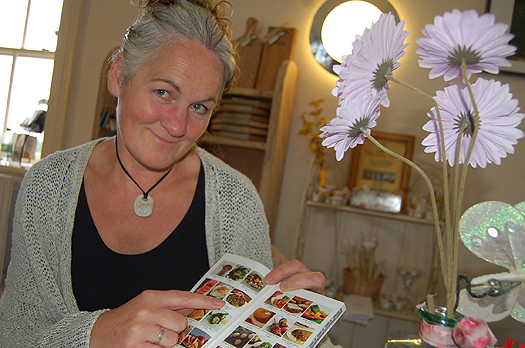
Also on this month’s programme I talk to The Sea Gardener, Marie Power (pictured above), in Tramore. She grew up on what’s known as The Copper Coast of County Waterford, a fascinating part of the countryside and has been running seaweed workshops for several years on a voluntary basis, even though her professional background is in management and training consultancy. Seaweed is not just a weed she says – and she is very definite about that. Listen to hear more.
HALF THE COUNTER IS FARMED
Nearly half of the fish which the public sees on fishmonger’s counters has been farmed. So Richie Flynn, IFA Aquaculture Executive, told me when I interviewed him. “This is something which should be encouraged for the future of coastal communities right around the coast,” he said, but added that the Government’s attitude towards licensing “is still a problem for aquaculture development.”
Email: [email protected]
Twitter: @Tom MacSweeney
#sailing – I have been friends for a long number of years with Ireland's two top international sailors who set new speed records for sailing in the Round Britain and Ireland Race. I hear regularly from them and am proud to be in touch with them and, as much as I could, have publicised the progress of their careers over the years I have known them. I believe that giving coverage to successful achievements by Irish sailors at international level is good for the country and for the sport.
Damian Foxall from Kerry and Justin Slattery from Cork deserve to be household names as much as icons in other sports. But, like many sailors, they are not in my view, being given the level of coverage they deserve in the general national electronic and print media.
The progress of the Olympic Providence IRL team at overseas events should also be given more coverage. This week John Twomey from Kinsale YC and his crew have been competing at the world disabled sailing championships in Canada in the hopes of qualifying for his 11th consecutive Games, but this has got little coverage nationally.
Hurling, the Irish women's rugby team, the emergence of potential new stars in Irish athletics, all deserve strong reportage but do Irish sailors not deserve coverage also?
The media at sailing events when there are problems – the GP14 Worlds in Strangford Lough this month; Dun Laoghaire in 2007 are examples of a degree of sensationalised coverage which lacked balance. They were reported as "near disasters," but lacked the qualification that the majority of the sailors looked after themselves, as they are expected in sailing to be able to do. If you go out in a boat, I was told from my first days in sailing, you take the responsibility of getting yourself back in safely.
Sailing deserves better coverage in the national media. Is it being denied that by either ignorance or bias against sailing, or the seemingly ever-present perception of the sport as elitist?
There are sailing journalists who attempt to counterbalance the generally negative attitude towards the sport, but as I found myself when working within RTE, it is an uphill battle and, in an island nation, this is not fair to the sport.
Justin Slattery from Cork is Bowman and a leading member of the Abu Dhabi Ocean Racing's Volvo Ocean 65, Azzam, skippered by Britain's Ian Walker, which crossed the finish line of the 2014 Sevenstar Round Britain and Ireland Race off the Royal Yacht Squadron in Cowes in an elapsed time of 4 days, 13 hours, 10 minutes, 28 seconds. This broke the previous world and race record for a monohull set by Volvo 70 Groupama, in 2010, by 1 day, 8 hours, 16 minutes and 27 seconds.
It was the second world speed record in sailing broken during the Round Britain and Ireland Race organised by the Royal Ocean Racing Club and another Irishman was also involved in the first.
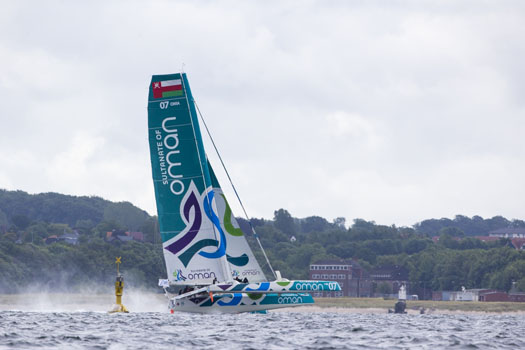
Record breaking Damian Foxall and Oman MOD 70
Ireland's Damian Foxall added the Round Britain and Ireland Speed record time to his impressive offshore sailing CV on board the Oman Sail MOD 70 catamaran. The crew of Musandam-Oman Sail, a MOD70 Trimaran crossed the finish line of the race at with an elapsed time of 3 days, 3 hours, 32 minutes, 36 seconds. This broke the previous world record for a multihull held by Banque Populaire 5 in 2011, by 16 minutes, 38 seconds.
"We hit a new top speed for the boat of 43 knots right at the start," said Damian, Co-skipper on the boat. "The hard thing about a race record, as opposed to a course record, is that with a course record you can wait until the weather is perfect and you just go. In a racing format you don't have that option. The only time we tacked in an 1800-mile circular course was after we had gone through the finish line!""
The MOD70 was skippered by Sidney Gavignet from France, one of the top sailors in the world and who is heading next for the tough Atlantic race, the single-handed Route du Rhum.
It was not all plain sailing for Abu Dhabi's Azzam. Two crew members were hurt during the race. Justin Slattery injured his ribs while trimmer Phil Harmer injured his hand.
And let's not forget the National Yacht Club duo that, despite very heavy weather and suffering major gear failure have persevered in the Round Britain and Ireland Race. The story of their sporting commitment deserves national coverage. Liam Coyne raced two-handed with Brian Flahive on their First 36.7, Lula Belle and they showed a level of spirit and determination that would bring pride to any sport when they won the two handed division.
NEW HELVICK LIFEBOAT
Helvick is a lovely spot on the South-East Coast. A fine little harbour, dominated by fishing boats, with a few dedicated leisure sailors also. I am not too sure about the location of visitor moorings outside the harbour, but at many parts around the coast those could be located in better, more sheltered spots. But that is beside the point of why I am writing about Helvick which is because it has got a new lifeboat through a strong contact with an English family. It is an Atlantic 85, built at a cost of €255,000. It has a number of improvements from the Atlantic 75, Helvick Head's former lifeboat, including a faster top speed of 35 knots; radar; provision for a fourth crew member and more space for survivors. It can operate safely in daylight in up to force 7 conditions and at night up to force 6. It also allows lifeboat crews to respond even faster in emergencies.
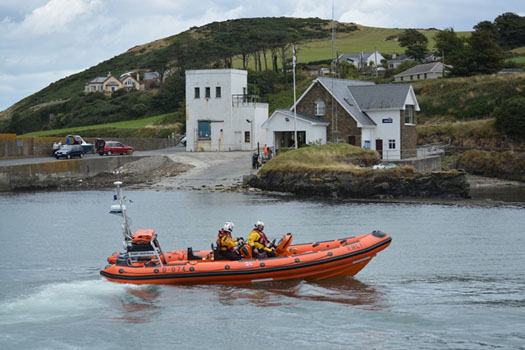
The new RNLB in Helvick and below the late Robert Armstrong after whom the new lifeboat, an Atlantic 85, is being launched in his name at Helvick Head lifeboat station
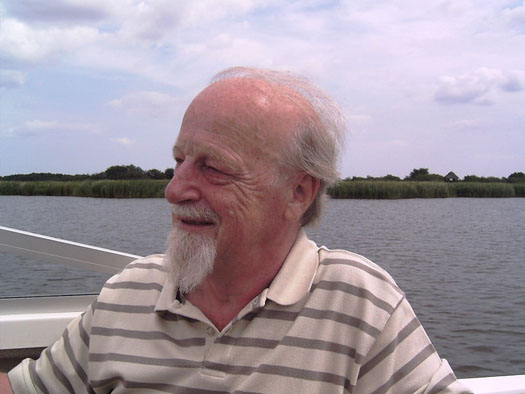
Its name is Robert Armstrong and it was funded by a legacy he left after his death in November of 2009. Born in 1936, he loved sailing, fishing and boats. His home was Blackheath but he had a holiday home in Potter Heigham on the Norfolk Broads, where he moored his own boat. There is a strong connection between the Armstrong family and Helvick. Robert Armstrong's aunt, Alice and her brother Charles, were the donors of Alice and Charles, Helvick Head RNLI's previous lifeboat and Robert had attended the naming ceremony there back in 2000 when he was given an RNLI jacket which he wore proudly.
CROW HEAD'S CABLE CAR
Paul O'Shea has written to me about an event at Crow Head:
"Hi Tom, I would like to promote an event on Crow Head on September 6. Lehanmore Community Coop want to replicate the first ever Cable Car crossing from there to the adjoining island. It will be a joint effort between Kerry Mountain Rescue and Castletownbere Coastguard Unit with the help of Castletownbere RNLI. All funds raised will be donated to KMRT."
HONOUR FOR JOHN TWOMEY
The decision to introduce a "President's Cup" event to honour John Twomey is well-deserved and recognises the achievements of Irish sailors, about which I have written earlier in this week's blog. Sailability Ireland, in conjunction with the ISA, has launched 'The Presidents Cup,' a new championship to encourage sailors with disabilities to compete in the classes sailed at Paralympic and international level.
'The Presidents Cup' has been named in honour of 10-time Paralympian and current President of the International Disabled Sailing Association, John Twomey from Kinsale Yacht Club. A team of 10 sailors from each of the four Irish provinces will compete in four different classes; the Hansa 303, SKUD 18, Squib and Sonar for this prestigious prize. Kinsale Yacht Club has kindly agreed to host this inaugural event which will be held on September 6 and 7. In 2013 the Club hosted the IFDS Disabled World Sailing Championships to incredible success and this event will form part of that legacy. Six races will be sailed and the team that has the best results in the four classes will be crowned champions. The event is being sponsored by Kingspan. A number of places are still available for both sailors with disabilities and volunteers who would like to participate in the championship. For more information Email: [email protected].
Sailability Ireland and the ISA are hoping that the event will encourage more sailors along the path to international competition. Supporting the availability of the sport to those with disabilities delivers on the commitment to sailing being a "sport for all". I remember the first time I reported on a disabled sailing event and how one lady competitor put me in my place when I asked her did she find it difficult to sail and she rightly responded: "Out on the water in a boat I am every bit as good as you!"
LOVE LIGHT AT A GREAT HEIGHT!
The tours of Ballycotton Lighthouse which began this Summer from the East Cork fishing village to the offshore island lighthouse have proved very popular, but now they are becoming a location for the lovelorn to commit their future!
A couple from Plymouth, Devon, became the first in history to announce their engagement at the top of the Llighthouse. During the scheduled noonday tour last Wednesday, 23-year-old Ryan Johnson proposed to 21-year-old Rebecca Daly on the lighthouse balcony and she accepted. They have a 5-month-old daughter, Lyra and were visiting friends in Ballycotton.
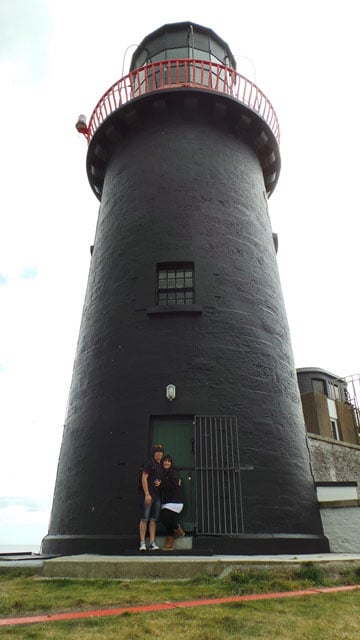
Happy couple back at ground level at Ballycotton lighthouse Ryan Johnson and Rebecca Daly on Ballycotton lighthouse
"Great to see romance is alive and well," said Derry Keogh, retired Ballycotton School Headmaster and local historian, who was the guide on their midday sailing trip to the island. "What a location to pop the question! When they heard about it, all the other tour visitors who were there gathered round and we sang 'Congratulations' - Phil Coulter maybe looking for royalties! This made it a double first for Ballycotton Island Lighthouse - the first ever sing song on the lookout tower!"
Since beginning in early July this year, the Ballycotton Island Lighthouse Tours have proved a great success with over 1,700 visitors hearing about the history of the lighthouse and seeing the view from the previously inaccessible lighthouse lantern balcony and island. This is an economic boost for the fishing village, both in profile and for local businesses.
VOLVO REPORTER
Irish sailing photographer and cameraman Brian Carlin has been appointed the Onboard Reporter with Team Vestas Wind for this year's Volvo Race. He has worked with the biggest names in the sailing world and on some of the biggest races.
Chris Nicholson, the four-time race veteran, who skippered Camper with Emirates Team New Zealand in the last edition of the race, will lead Team Vestas Wind, a campaign sponsored by Vestas, the Danish wind energy company. This is the seventh team in this year's Volvo round-the-world which begins with an In-Port Race on October 4 in Alicante, Spain.
SEAFOOD EFFICIENCY
And speaking about fishing and seafood which is increasing its attraction to consumers, retailers who sell fish are being urged to take part in a new scheme by Bord Iascaigh Mhara (BIM), the Irish Sea Fisheries Board, the State agency with responsibility for developing the sea fishing and aquaculture industries. This is the
"BIM Green Seafood Business Programme," aimed at assisting seafood businesses to reduce their environmental impact and save on energy costs. ""Making seafood processes more sustainable can improve a business 'bottom line' by reducing costs and enhancing their environmental reputation," says BIM.
In conjunction with Green Business and SEAI, BIM I are hosting a series of FREE, half-day seminars to assist Seafood Retailers. They will be held in Dublin on Tuesday, October 14 at the Radisson Blu Hotel, Dublin Airport; and in Cork on Thursday October 16, at the Park Inn, Cork International Airport. Advance booking is required as places are limited. For more information and to book, contact Lorraine O'Byrne in BIM on 01 2144185 or email [email protected]
Email: [email protected]
Twitter: @Tom MacSweeney, @AfloatMagazine



























